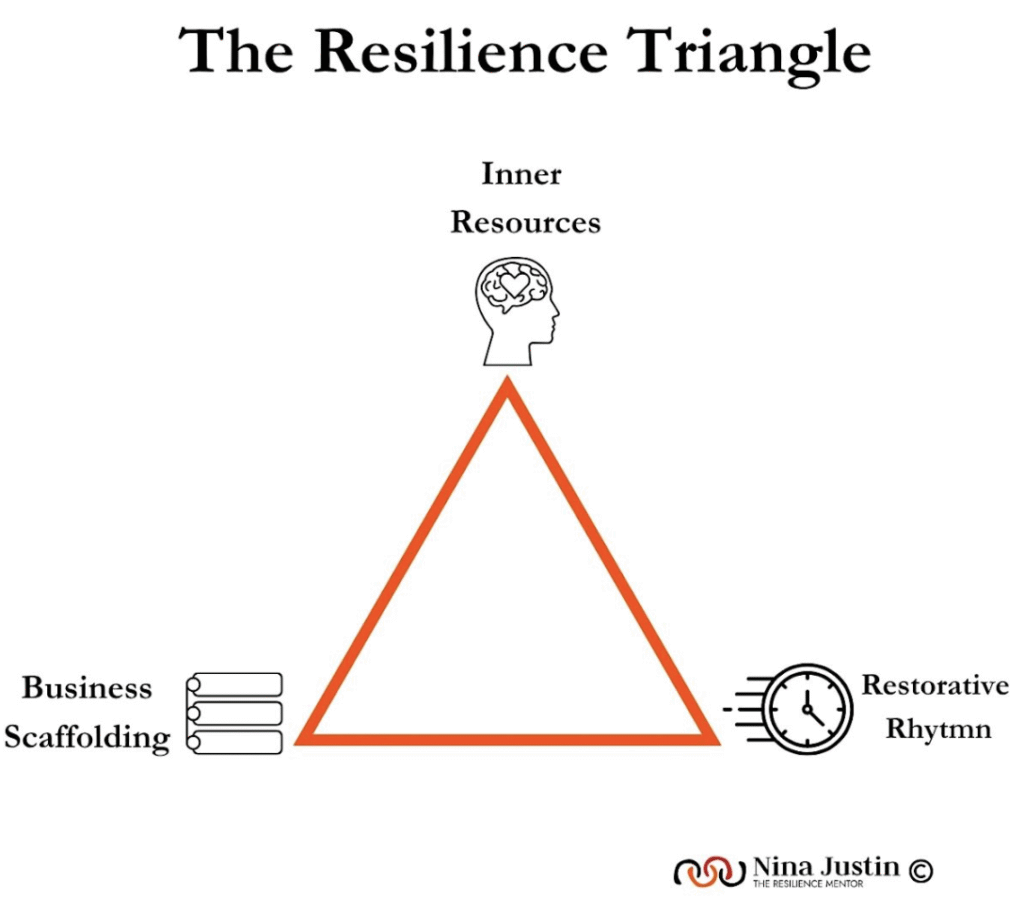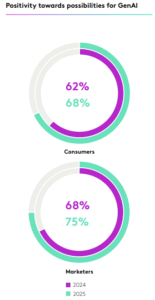Startup wisdom is a new TNW series offering practical lessons from experts who’ve helped build great companies. This week, global traction strategist Nina Aziz Justin — founder of The Resilience Mentor — shares her approach to building resilience.
In the startup world, we’re taught to obsess over metrics. Burn rate, CAC, MRR — they dominate the dashboards and drive the decisions. And yes, data matters. But there’s something quietly more essential that rarely gets the same spotlight: resilience.
This piece offers a balanced perspective — one that holds space for both sides. While execution metrics are essential for traction and scale, resilience isn’t just a soft skill. It’s a core operating system — the invisible force that allows a founder to keep showing up, building wisely, and navigating uncertainty with strength and clarity.
The case for metrics: why data absolutely matters
Let’s be clear: in today’s fast-moving, high-stakes environment, numbers count. Metrics help us validate our ideas, measure momentum, and make informed decisions. They’re how investors assess risk, and how we as founders understand whether our vision is actually landing in the real world.
You need to know your CAC. You need to track churn. You need a pulse on retention and cash flow. These aren’t vanity stats — they’re the lifeblood of your business’s sustainability.
But here’s the rub: strong metrics alone don’t guarantee staying power.
Time and again, I’ve seen startups with impressive early numbers unravel because of what was happening inside — misaligned founders, decision fatigue, burnout, or simply the loss of joy and vision. That’s why real traction must include more than what’s on the spreadsheet.
The power of resilience: it’s more than just grit
Resilience is often mistaken for blind persistence — powering through, grinding harder, staying “strong.” But in truth, resilience is more elegant and multidimensional than that.
In my work, I use a proprietary concept I developed call the “Resilience Triangle” — a way to build resilience from the inside out.
It weaves together three vital threads:
- Inner resources — emotional regulation, clarity of identity, and the ability to stay grounded through highs and lows.
- Business scaffolding — systems that support you: smart offers, sustainable pricing, clear time boundaries, and a support circle that has your back.
- Restorative rhythm — recovery, reflection, and recalibration. Because nonstop hustle without pause leads to erosion, not excellence.

This isn’t just philosophical. A 2023 Harvard Business Review study found that startups led by resilience-conscious founders were 38% more likely to survive beyond five years. A McKinsey global survey linked resilience-building to a 21% increase in innovation outcomes.
Most compelling of all is the 2024 Founder Resilience Research Report. Produced by Foundology in collaboration with UCL School of Management and supported by Enterprise Educators UK, the report offers powerful confirmation of what many of us have experienced in the field. The study — the largest of its kind, involving nearly 400 entrepreneurs — revealed that a striking 92% of founders rank resilience as the most essential entrepreneurial trait, even ahead of communication and problem-solving.
It reminds us that resilience isn’t just a feel-good factor — it’s a proven, practical lever for startup success.
Resilience and execution: not opposites — but intertwined
Here’s where we bridge the gap.
Resilience isn’t the opposite of execution — it’s what fuels effective execution over time. Founders who cultivate resilience make decisions more clearly, recover from setbacks faster, and hold focus amidst pressure. That 92% figure from the Foundology study speaks volumes — resilience is no longer optional, it’s foundational.
The two aren’t in conflict — they’re co-dependent. Metrics tell the story. Resilience allows you to keep writing the next chapter.
Let’s talk about the common critiques
“Resilience without execution = stagnation”
True. But that’s not the kind of resilience I’m talking about. Real resilience moves — it experiments, learns, and adapts. Especially in scrappy, underfunded startups, it’s often the only reason a founder finds creative workarounds instead of quitting.
“Not every founder needs to be emotionally balanced”
Fair — not everyone leads from a place of calm. But those who lack resilience are four times more likely to feel overwhelmed, and twice as likely to exit their startup early. Emotional chaos may be survivable in the short term — but it rarely scales.
“Resilience is a byproduct, not a leading indicator”
Actually, it’s both. Yes, resilience is forged in the fire — but it can also be proactively cultivated. Teams that intentionally build resilience are more responsive, more resourceful, and less likely to fall apart under pressure.
“Market conditions, not mindset, determine success”
External factors matter, absolutely. But it’s the resilient founders who adapt fastest, pivot wisely, and find ways to survive when others stall. In today’s polycrisis world, mindset is strategy.
A more balanced lens: metrics + resilience = real traction
We’re seeing a shift — a new generation of investors and advisors are beginning to assess both execution metrics and human metrics. Not to be fluffy, but to avoid betting on businesses with glossy numbers and crumbling foundations.
Resilience, adaptability, and founder alignment are now seen as risk-reducing assets — and rightly so. They don’t replace the numbers. But they give the numbers meaning that lasts.
Want to start strengthening resilience in your business?
Here are some simple, high-impact places to begin:
- Schedule time to rest and recalibrate. Think of it as business hygiene.
- Align your offers and pricing with your energy, not just the market.
- Build a tribe. Not just advisors, but humans who lift you and challenge you.
- Revisit your model. Is your business still a match for the life you want to live?
These are not soft things. They are strategic.
The business that can hold you can hold more
This isn’t a call to abandon metrics. It’s an invitation to expand what we count.
The startups that thrive don’t just execute well — they hold up under pressure. They evolve without breaking. They grow in ways that include the founder, not just the forecast.
So keep tracking your KPIs. Watch your runway. Run the numbers.
But also ask: Can I still breathe inside this business?
Because if you can, you’ll have the stamina, clarity, and fire to keep building — not just faster, but better.
This is not fluff. It is foundational.






